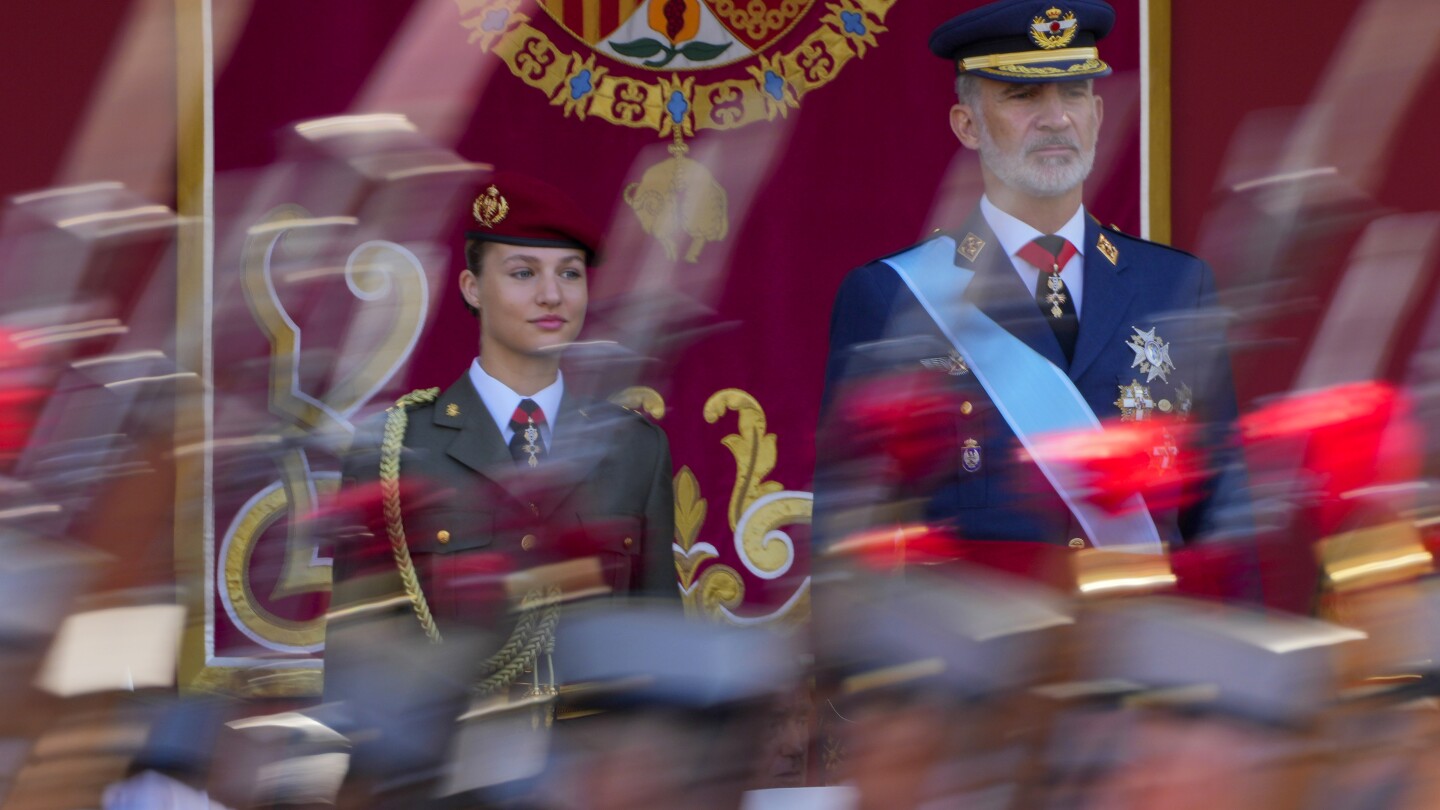MADRID (AP) — The heir to the Spanish throne, Princess Leonor, is to swear allegiance to the Constitution on her 18th birthday Tuesday, in a gala event that lays the groundwork for her eventual succession as queen when the time comes.
The nationally televised ceremony in the lower house of Parliament is understood to symbolize the continuity of Spain’s parliamentary monarchy and the institution’s allegiance to the chamber.
She is expected to use the same oath as her father did when, as prince, he turned 18 in 1986.
Leonor de Borbón Ortiz became crown princess when Felipe VI was proclaimed king on June 19, 2014. Her face has been in the media a lot lately and already the term “Leonormania” is being used, underlining her growing popularity as the modern face of the future monarchy.
The ceremony Tuesday was necessary for her to be able to succeed to the crown and become queen, if and when needs be.
Banners with her picture decorated lampposts along several of Madrid’s main streets. Many official buildings were festooned with drapes and tapestries for the ceremony, which was to be shown on national TV and on several giant screens set up in the capital.
The royal family is to arrive at parliament at 11 a.m., escorted a by a mounted squadron of the Royal Guard.
By the early hours of Tuesday morning, crowds had begun lining the sidewalks along the royal route.
Representatives from leftist political parties, including three government ministers, and lawmakers from Basque, Catalan and Galician regional and separatists parties boycotted the event, as they favor a republic, not a monarchy.
The royal family is still trying to recover its former good name in Spanish society and make up for the scandals involving several family members, most notably former King Juan Carlos, Leonor’s grandfather.
Neither Juan Carlos nor former Queen Sofía will attend the special parliamentary session or the subsequent ceremony in Madrid’s Royal Palace, but they are to be present at an evening family gathering in the Pardo Palace outside Madrid.
Juan Carlos, 85, who abdicated in 2014, left Spain for Abu Dhabi in 2020 amid a cloud of financial scandals. The investigations in Spain and Switzerland have since been dropped while he won another suit against a former lover in October.
He has made it known that he would like to return Spain but it’s not clear whether Felipe or the government would agree to that just yet.
Felipe and Letizia have recovered a lot of the institution’s good image but for many in Spain the monarchy is still questioned given that it was former dictator Gen. Francisco Franco who put Juan Carlos on the throne, bypassing his father and natural heir, Juan de Borbón. Spain hadn’t had a royal family since Alfonso XIII went into exile with the coming of the Second Republic in 1931, five years before Franco and other generals staged a coup.
Nowadays, the royal family’s popularity is difficult to gauge. Spain’s main polling body has stopped asking Spaniards what they think of the royals since 2015 amid the myriad scandals.
Little is known about Leonor’s personality as she has yet to give media interviews. But when she received her school leaving diploma in Wales earlier this year, her fellow students cheered her on and her tutor praised her “unwavering passion for learning, for understanding people, and exploring diverse perspectives,” adding that they would miss her sense of humor.
Leonor is currently receiving basic military training at an academy in the northeastern city of Zaragoza. She speaks English, French, Catalan, a language spoken in northeastern Spain, and some Arabic.
____
Associated Press writer Joseph Wilson in Barcelona, Spain contributed to this report.

